And payable immediately due net for payment terms
Product S/4HANA 1709 Focus Sales and Distribution Version 3.2 |
PREREQUISITES Before you use this case study, you should be familiar with navigation in the SAP system. |
|---|
Step 2: Create Contact Person for Customer |
||
|---|---|---|
| Time 5 min | ||
| Now that we have created the master data for our new customer, The Bike Zone, we can create the master data for a contact person. A contact person is an employee/representative of the new customer’s company. The contact person defines a specific person to communicate with when dealing with The Bike Zone. | ||
To create a contact person, follow the menu path: Logistics ► Sales and Distribution ► Master Data ► Business Partner ► Contact Person ► Create |
Menu path | |
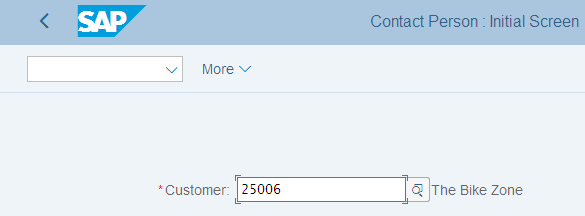 |
||
| ### | ||
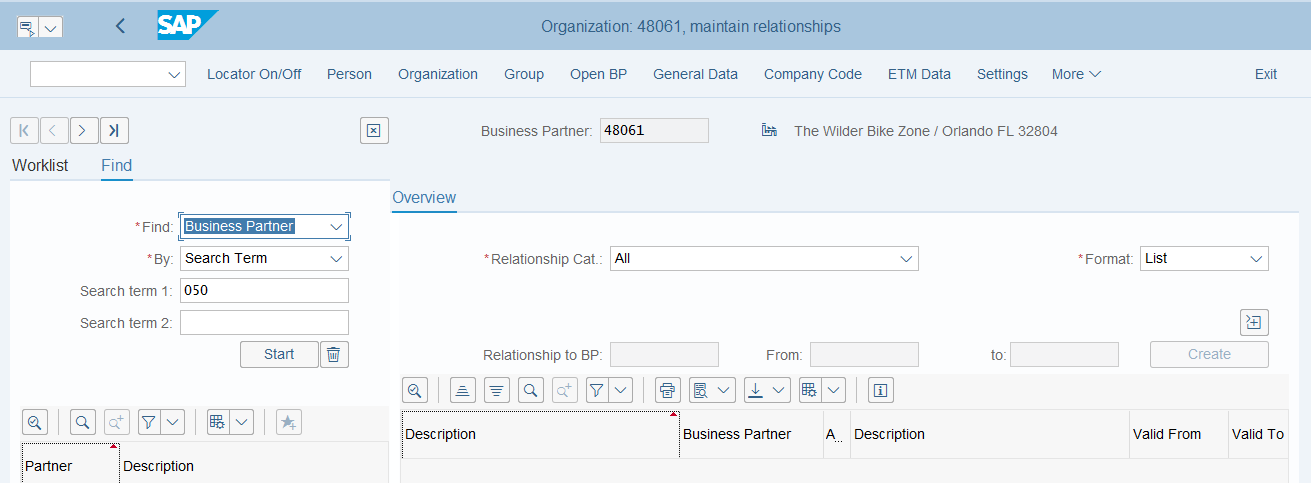 |
||
Notice that the Customer number is no longer shown, but the Business Partner number for your customer is populated. (Alternatively you can use t-code BP and enter your Business Partner number) |
||
| Choose “Contact Person” in the drop-down menu next to Create in BP role. In the new pop-up screen Change to another BP role in create mode click on . | ||
First name Last name |
||
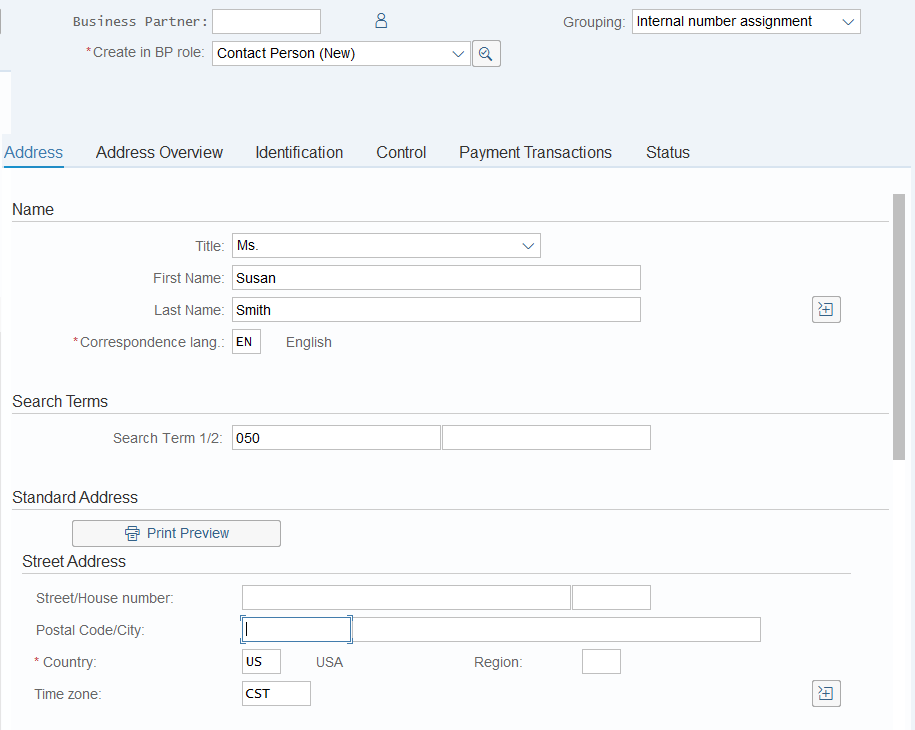 |
||
| Click on the exit icon to return to the SAP Easy Access screen. | ||
Create vendor section
Step 1: Create New Supplier (Vendor) |
||
|---|---|---|
| Time 10 min | ||
| Suppliers are established in both accounting and purchasing. The supplier master record requires three views – general, accounting, and purchasing in order to be active. Suppliers can be created centrally meaning that all views are generated concurrently or responsibility can be distributed to accounting and purchasing for creating and maintaining their respective views. In this case study, central creation will be used to enter all of the needed data. In this way, this vendor record will contain all of the information necessary to conduct business transactions. | Vendor master | |
This will produce the following screen. |
Menu path | |
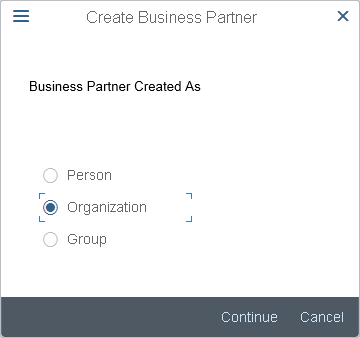 |
||
| In the Create Business Partner screen choose Organization. Press enter or click on . | ||
### W Industrial Lake Dr, ### |
||
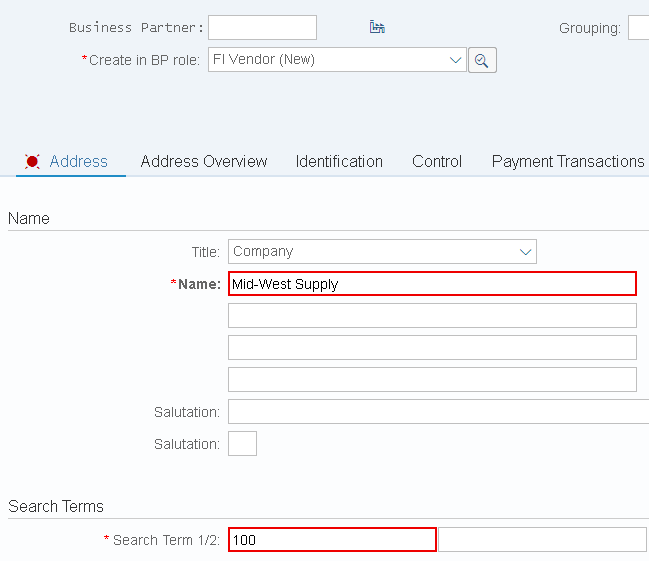 |
||
| Choose the button to get an overview of all tabs. Navigate to the tab Vendor: Tax Data. | ||
| In the Additional Tax Data section enter 12-3456### as Tax Number (remember to replace ### with your number). Confirm your entry and click on the button . | 12-3456### | |
| Enter US00 for company code. Then click on Enter. | US00 | |
| In the tab Vendor: Account Management enter 300000 as Reconciliation acct. Then click on Enter. | 300000 | |
| Switch to the tab Vendor: Payment Transactions and enter 0001 as Payment Terms and select Check Double Invoice. | 0001 Check Double Invoice |
|
| Switch to the tab Vendor: Correspondence enter your name as Clerk at vendor. | your name | |
| In the dropdown menu Create in BP role choose Vendor. | Vendor | |
| In the Popup Change to another BP role in create mode click on . | ||
| To expand your purchase data information of your newly created partner Mid-West Supply click on . | ||
| In the Purchasing Organization area enter US00 as Purch. organization. Then click on Enter. | US00 | |
| In the tab Purchasing Data enter USD as Order currency and enter 0001 (Payable immediately Due net) or choose it with the F4-help Payable immediately Due net in Payment terms. | ||
| Navigate to the tab Partner Functions and enter VN for the slot PF. Press enter. | VN | |
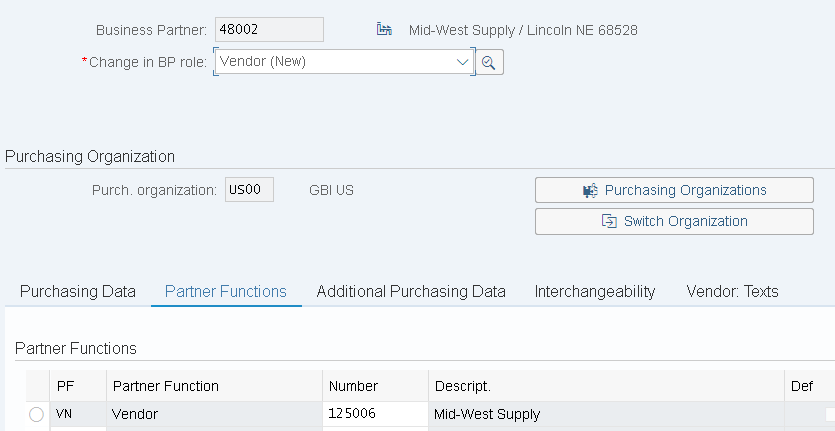 |
||
| Click on to save your vendor master record. The system will automatically assign a unique number for your vendor. | ||
| Click on the exit icon to return to the SAP Easy Access screen. | ||
Appendix
Note 1
Notice the two grey scroll bars, one on the right side and one on the bottom.
This shows a laptop view where more scroll bars are added:
Note 2
Note 3
Configuration of transaction BP
If you are doing curriculum/case building and want to see how everything is set up, then the following is a good start.
February 22, 2017 8 minute read
S/4HANA Business Partner – Customer-Vendor Integration
This blog is aimed to give you most of the information you want to know for setting up Business Partner for new implementation or System conversion from ECC to S/4HANA.
There are redundant object models in the traditional ERP system in which the vendor master and customer Master were used and with aim of principal of one SAP has simplified this approach and has introduced BP as mandatory target object in S/4HANA.
No relation between a vendor and a customer for the same real world entity (no role concept)
No time-dependency
One business partner could have multiple addresses
Time-dependency object attributes and relationships
It´s recommended but not mandatory that BuPa ID and Customer-ID / Vendor ID are the same.
The Business Partner Approach is not mandatory for the SAP Simple Finance 1503
The appropriate specific transaction like XD01,XD02, XD03 or VD01, VD02, VD03 / XK01, XK02, XK03 or MK01, MK02, MK03 etc. are not available in SAP S/4HANA Enterprise management Version i.e. 1511 and 1610
Currently mass maintenance for customers and vendors via transaction MASS is not available.
Select General Business Partner Role and Grouping, here this grouping is linked with customer/ vendor Number range and this Grouping is key in linking the Vendor/Customer & BP groups as well as number ranges which is explained below in detail.
Table BUT000 will be updated once General BP role is completed.
FI document can be posted but cannot create PO as purchasing data is not yet extended so for extending purchasing data use ROLE FLVN01

Setting up Customer
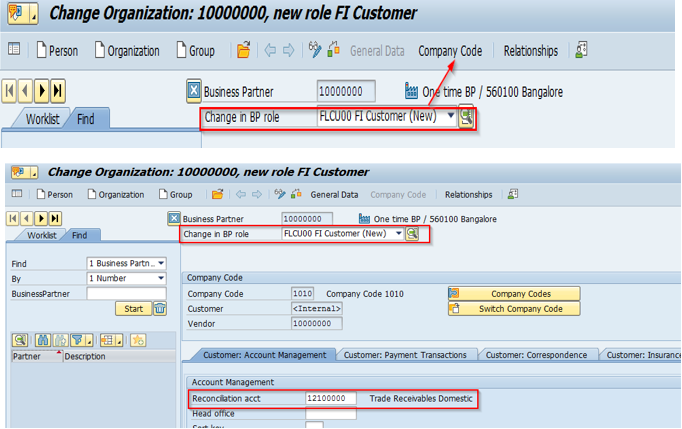
Table KNVV updated with Sales view details and henceforth Customer can be used in sales area.
Extend Customer to Credit Segment
Maintaining Tax details
You can add customer Tax details in Identification tab of BP which will enable you to enter tax details with tax category and tax number and once you save this detail in BP the same you can see in KNA1 table , you can check whether these tax categories exists in table V_TFKTAXNUMTYPE & V_TFKTAXNUMTYPEC & also check field BP status that these tax number fields are optional/mandatory not hidden..
Cross-Application Components–> Master Data Synchronization –> Synchronization Control–> Synchronization

Assign BP Role to BP Role Category
Cross-Application Components–> SAP Business Partner–>Business Partner–> Basic Settings –> Business Partner Roles–> Define BP Roles
Additionally BP grouping is mapped with Vendor/Customer account group

Similarly for Customers we need to define Account Group and assign number range to Customer account groups.
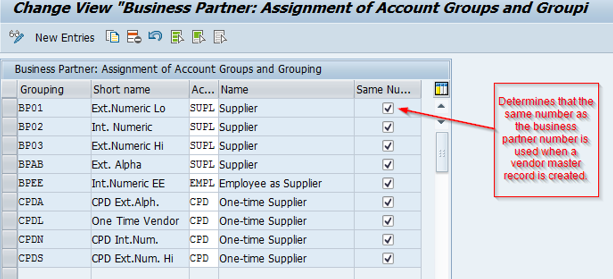
Define BP Number Range and assigning to BP Grouping
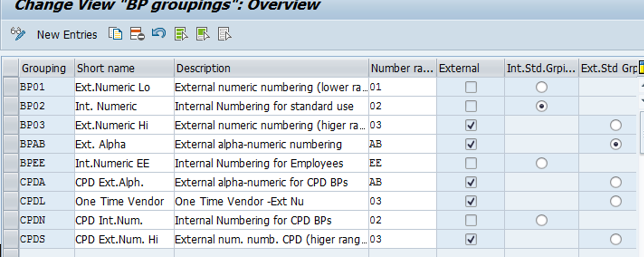
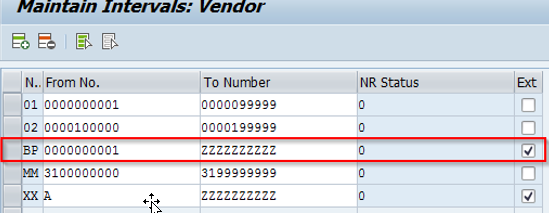
Similarly create Number Ranges for Customer Accounts.





